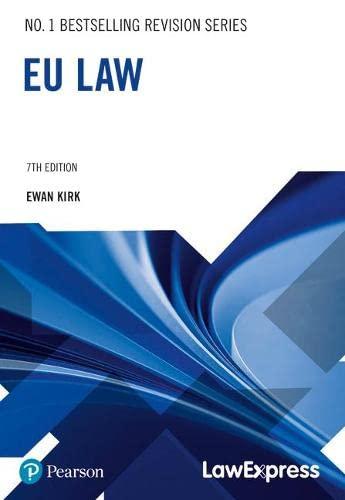Question
Bell Canada debentureholders opposed a buyout of BCE, a large Canadian telecommunications corporation, by a group headed by the Ontario Teachers' Pension Plan board. The
Bell Canada debentureholders opposed a buyout of BCE, a large Canadian telecommunications corporation, by a group headed by the Ontario Teachers' Pension Plan board. The buyout was financed in part by the assumption, by Bell Canada, a wholly owned subsidiary of BCE, of $30 billion of debt. This would reduce the value of the Bell Canada debentures by about 20 percent. The value of the BCE shares would, on the other hand, increase by about 40 percent as a result of the buyout. The debentureholders therefore opposed court approval of the buyout and claimed that they were entitled to relief under the oppression remedy. The Quebec Supreme Court approved the buyout, but the Court of Appeal allowed the debentureholders' appeal and disallowed the buyout. The case went to the Supreme Court of Canada.
To whom do corporate directors owe a fiduciary duty? What should the directors do if the interests of the corporation and of particular stakeholders do not coincide? What remedies do these stakeholders have if they believe that they have not been treated fairly? Does the law require that business decisions be perfect or they will be overturned by the courts if subsequent events showed that the decisions were not correct?
Step by Step Solution
There are 3 Steps involved in it
Step: 1

Get Instant Access to Expert-Tailored Solutions
See step-by-step solutions with expert insights and AI powered tools for academic success
Step: 2

Step: 3

Ace Your Homework with AI
Get the answers you need in no time with our AI-driven, step-by-step assistance
Get Started


